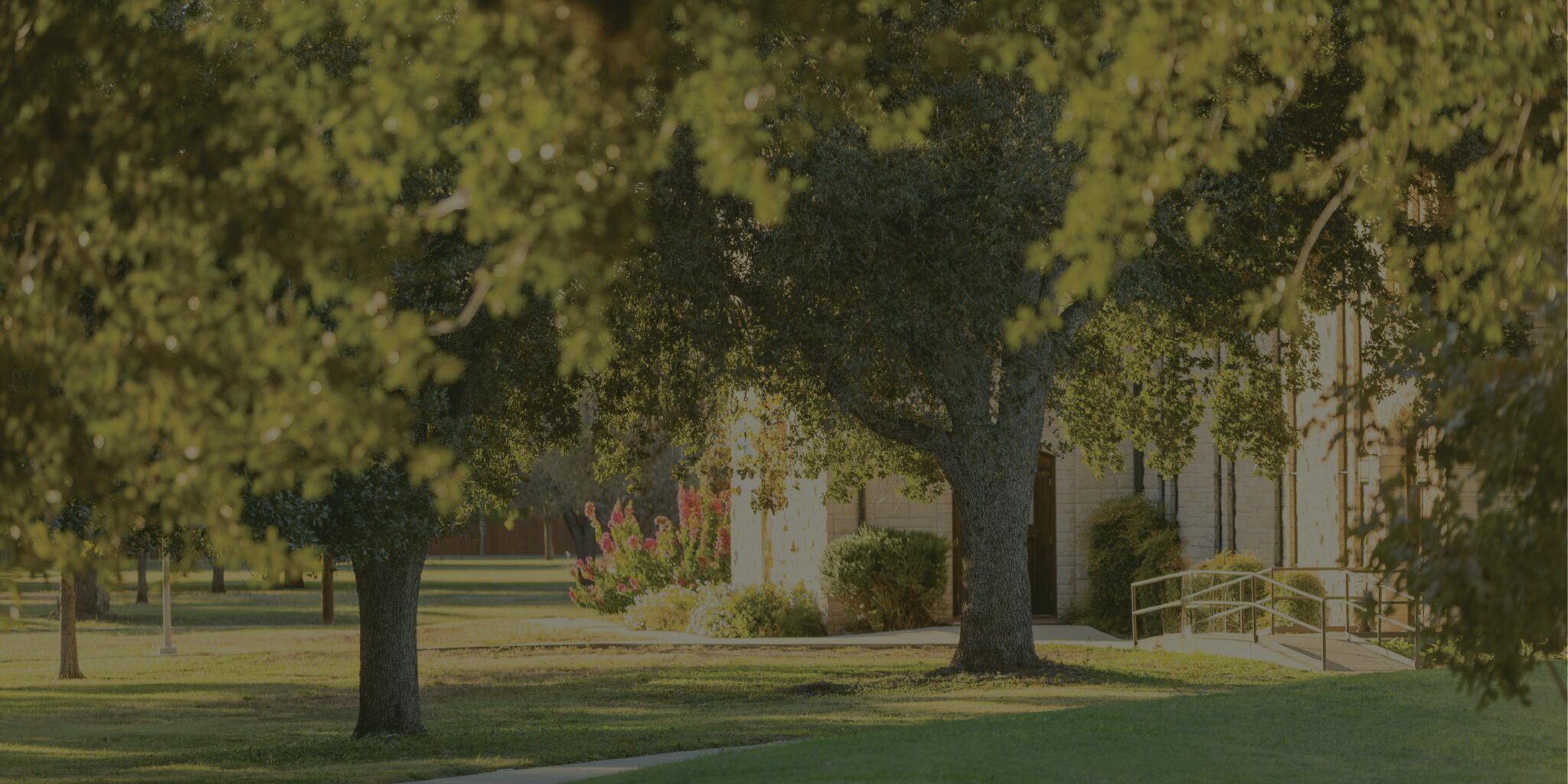Upcoming Opportunity
Scriptural Reasoning as Vocational Reflection
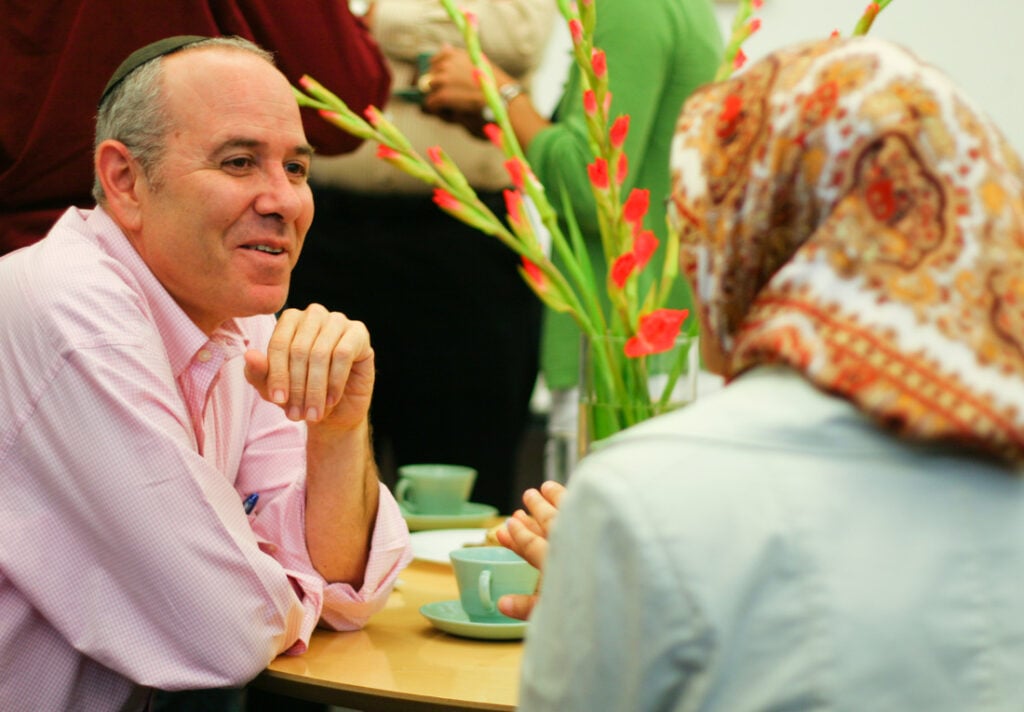
In May, you can participate in one of four regional hubs—at no cost—for training in Scriptural Reasoning, which can serve as an excellent prompt for students to think about their future directions in life. Scriptural Reasoning is a transformative practice that encourages people of different faith traditions to enter into conversation with one another, and evidence suggests that it has excellent potential for vocational reflection as well.
Thanks to the generosity of Lilly Endowment Inc., two nights’ lodging and all meals will be covered, along with a modest travel reimbursement available if needed.
Those who wish to attend need only click on the link below for their preferred date and location and enter their personal information. That’s it! No application needed, but space is limited, so applicants will be accepted on a first-come, first-served basis. Each member from a campus team will need to register separately and individuals are also welcome.
Here are the dates and locations of each hub:
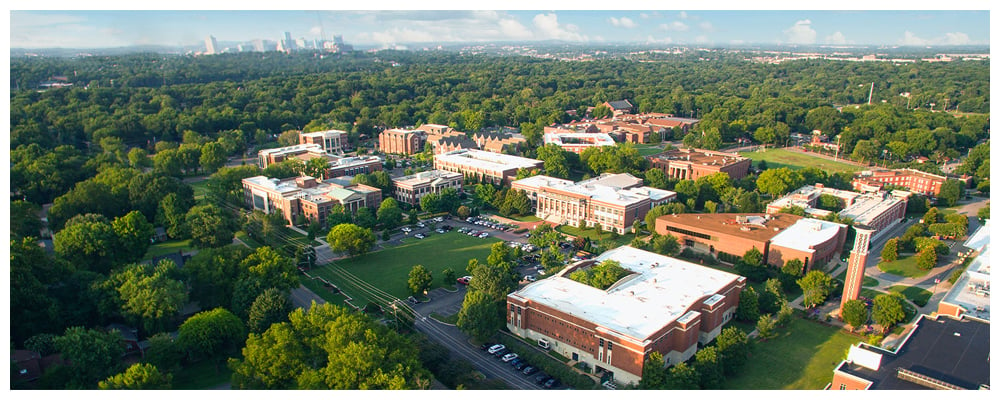
May 4–6, 2025
Lipscomb University
Nashville, TN
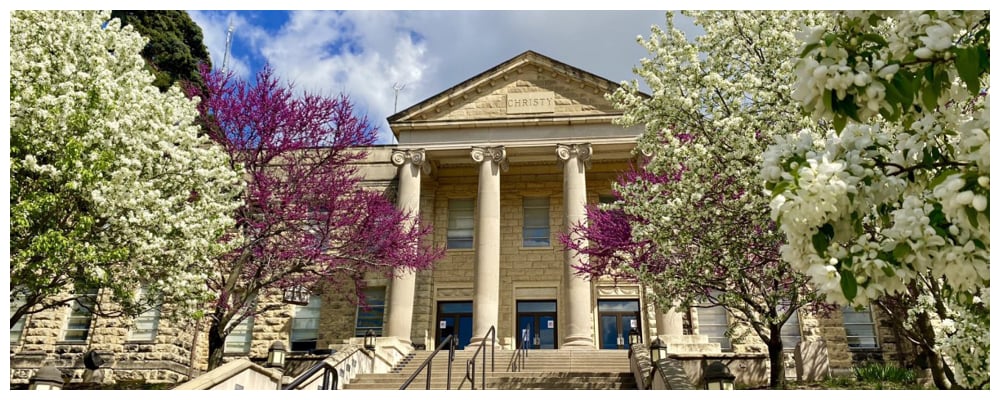
May 7–9, 2025
Southwestern College
Winfield, KS

May 18–20, 2025
Northwestern University
Evanston, IL
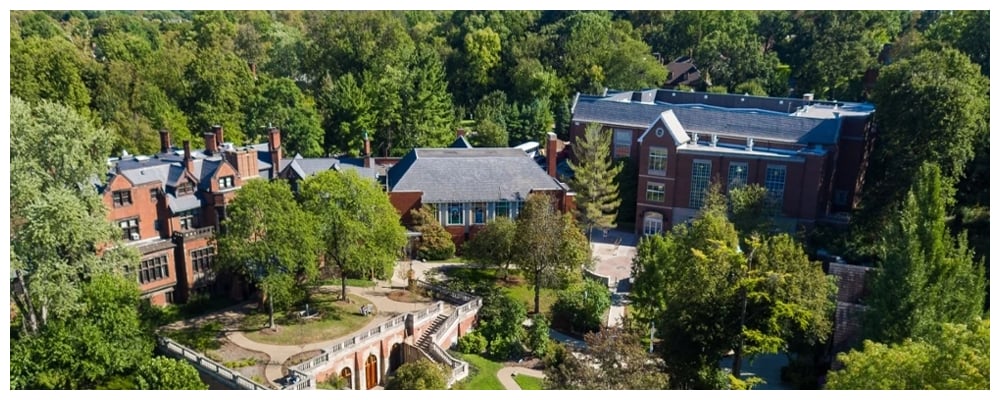
May 21–23, 2025
Drew University
Madison, NJ
For more information about the Scriptural Reasoning practice, the training hubs, and links to further information about each hub, visit our webpage. For questions not answered on the webpage, please contact Nick Adams, who is coordinating the hubs for NetVUE; he can be reached at nadams@cic.edu.
NetVUE Gathering
Integrating Vocation in the Academic Disciplines
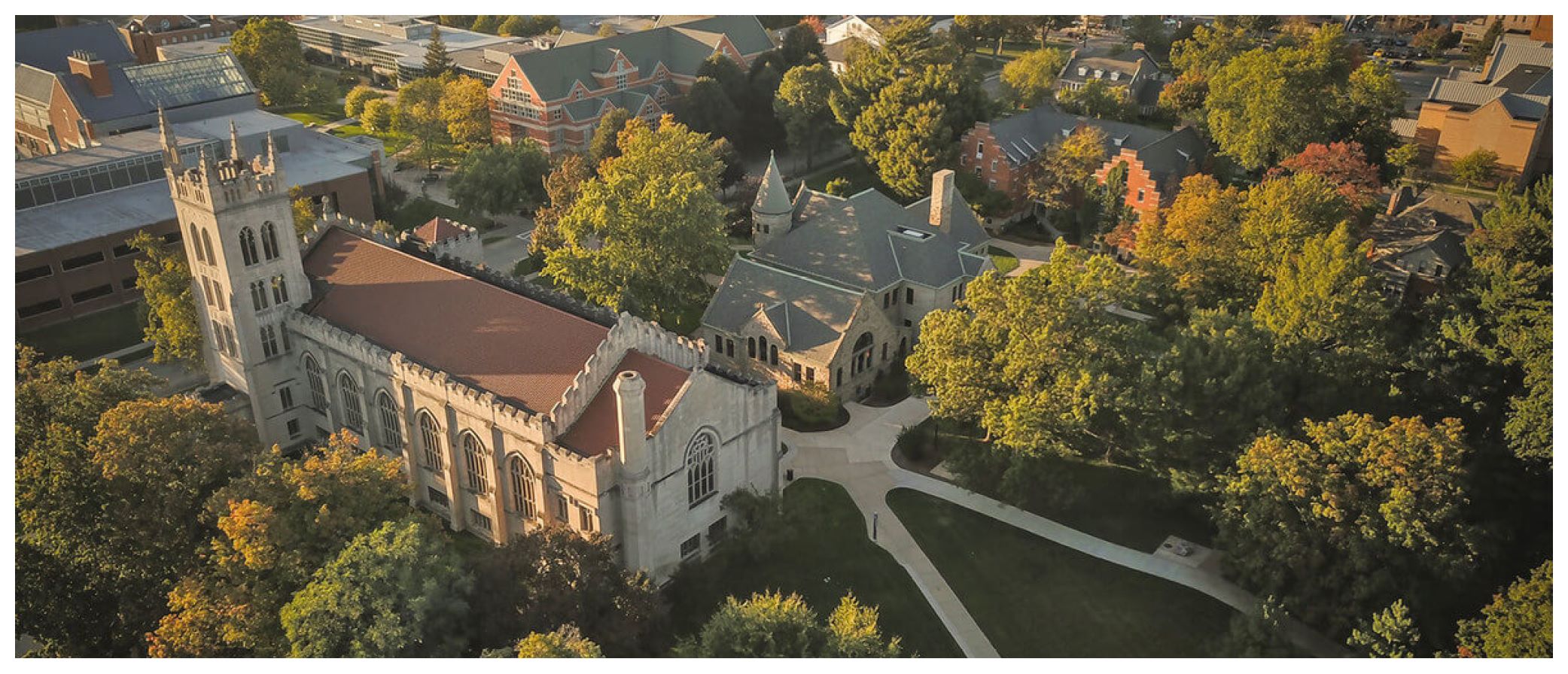
Please mark May 29–31 on your calendar for a regional gathering hosted by Hope College in Holland, Michigan, which will focus on Integrating Vocation in the Academic Disciplines. The theme of this event grew out of a recognition that vocational programming is often centered on general education, career development, and/or religious life, whereas academic disciplinary courses receive much less attention. To address this gap, this gathering will encourage faculty members, staff, and academic departments to consider ways of integrating vocation into disciplinary courses and academic majors.
Born out of their NetVUE Vocation Across the Academy Grant, faculty members at Hope College have been redesigning courses in nine different academic departments over recent years. Speakers at the event will include Geoffrey Bateman of Regis University, as well as Hope College faculty members Lindsey Root Luna and Jeanne Petit.
NetVUE Gathering
Save the Date: Bushnell University Hosts “The Purposeful University”
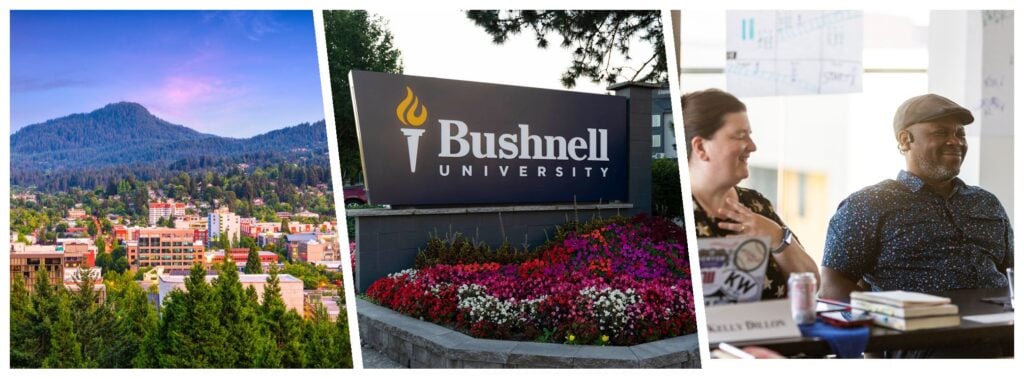
Does your institution have a calling? Save the dates of October 2–4, 2025 for a NetVUE regional gathering hosted by Bushnell University in Eugene, Oregon, which will explore institutional vocation and purpose in the changing landscape of U.S. higher education. How does a liberal arts institution discern, embody, and live out its calling? How does an institution articulate and communicate its vocation, and how does it infuse and embed that sense of vocation across the academy? These timely questions will be the focus of Bushnell’s regional gathering, titled The Purposeful University.
Don’t let the distance to Oregon worry you; limited travel assistance will be available to those institutions sending two or more persons to this event. Bushnell brings a wealth of relevant experience to this conversation, having engaged with institutional vocation through a NetVUE Grant for Reframing the Institutional Saga, as well as a presidential initiative exploring the creation of beloved community on campus. The university has also sought to embed vocational exploration throughout its curricular and co-curricular programs. At this gathering, Bushnell staff will share some of these experiences—not as definitive models, but as conversation starters that might inspire and generate approaches that will be relevant to and useful for other NetVUE member institutions. Mark the date on your calendar and keep an eye on the relevant page on the NetVUE website for registration information, which will appear soon.
Announcement
Announcing the New NetVUE Journal: Studies in Vocation and Calling
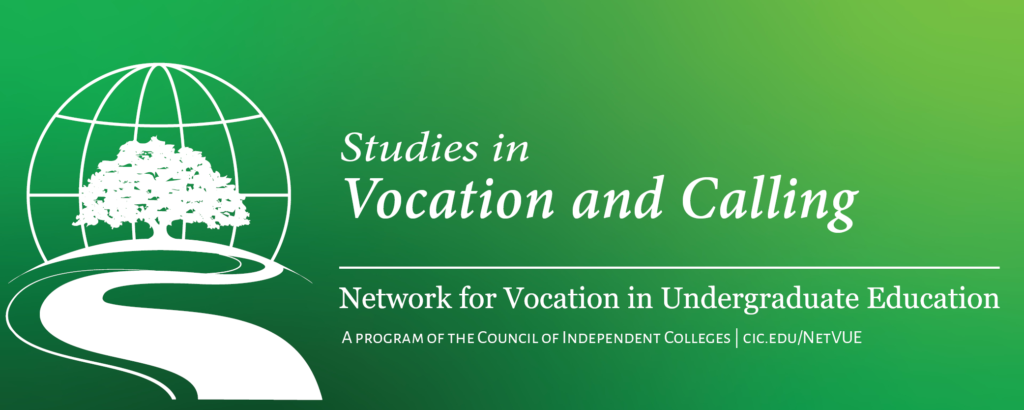
Anyone associated with NetVUE knows that faculty members and staff at our member institutions are doing some important and innovative work in helping students think about their future callings in life. We’d like to get more of their work in front of a larger audience! Please consider writing about your vocation-related reflections, practices, and/or scholarly insights, and submitting your work for publication in our forthcoming journal, Studies in Vocation and Calling. Your writing could focus on theoretical reflections, program successes, grant outcomes, classroom epiphanies, and even fiction and poetry with a connection to vocation. NetVUE now has an active webpage describing the journal and answering a number of frequently asked questions. If you’ve ever thought of writing something about vocation and getting it published, please consider contributing!
Announcement
A Callout to NetVUE Colleagues: Tim Clydesdale is Seeking Purposeful College Athletes
Many NetVUE leaders know the work of Tim Clydesdale, the author of The Purposeful Graduate: Why Colleges Must Talk to Students about Vocation (Chicago, 2015). Now, a decade later, Clydesdale is returning to the study of vocational impacts and best practices with a new focus, asking what it takes for campuses to nurture purposeful student athletes. Some athletic programs, and some coaches, have devised thoughtful programs to foster their athletes’ reflection and planning. Clydesdale hopes to identify and visit eight NetVUE campuses in the next 12 months that have athletic programs and purposeful student athletes of whom they are proud. Are you at one of these campuses?
If you know of purposeful student athletes and would like to recommend your campus’s athletic program, please contact Tim Clydesdale at clydesda@tcnj.edu. He and his team are eager to explain the project in more detail and set up convenient dates to visit campuses this spring, or next fall or winter.
Reflections
Reflections on NetVUE at SXSW EDU
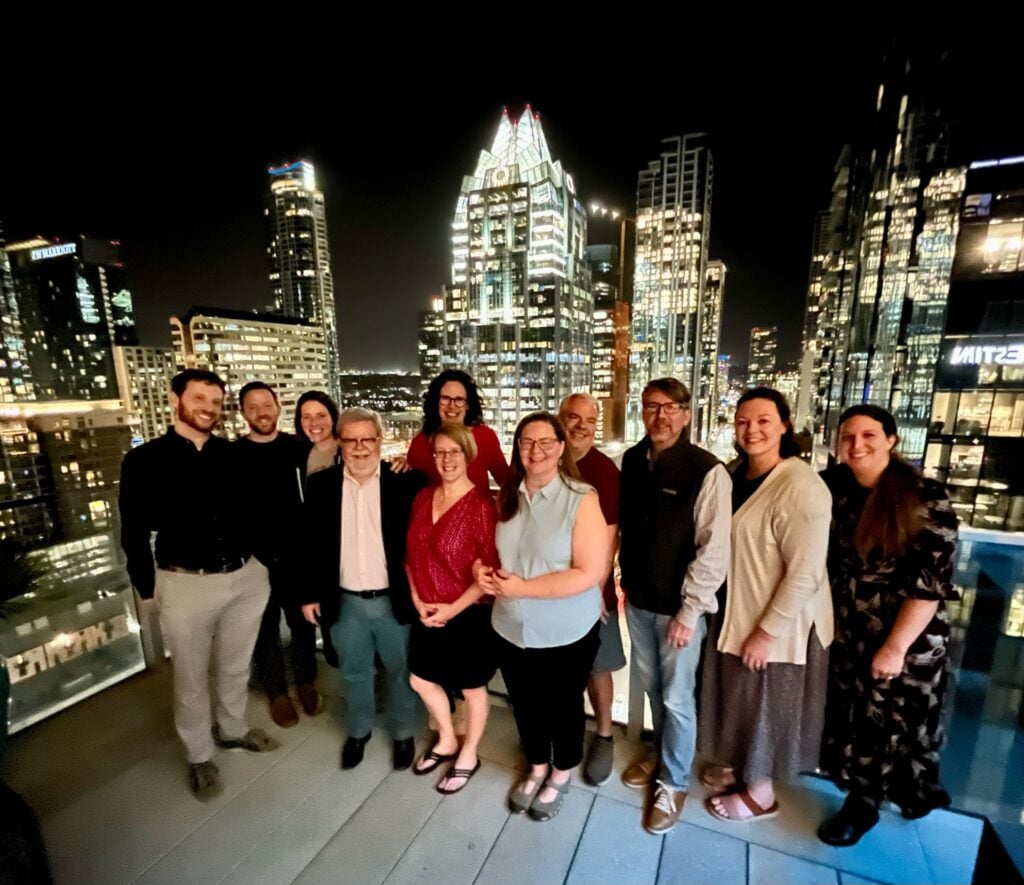
For the first time this spring, NetVUE had a significant presence at SXSW EDU in Austin! Many will be familiar with the film and cultural showcase that is SXSW (South by Southwest), but for the past 15 years SXSW EDU has also been evolving as a festival of conversations, performances, films, and other events relevant to educators, parents, and policymakers. At this year’s event, NetVUE hosted a conversation titled Innovation & Change in Higher Education, as well as a “meet-up” for Faculty Leadership Beyond the Classroom. As a program of the Council of Independent Colleges (CIC), NetVUE was able to send 13 colleagues to Austin, and we asked several of them to write short reflections on one of the many sessions they attended.
Rewiring How We Learn: The Power of an Experimental Mindset
Keynote by Anne-Laure Le Cunff, Neuroscientists & Founder, Ness Labs
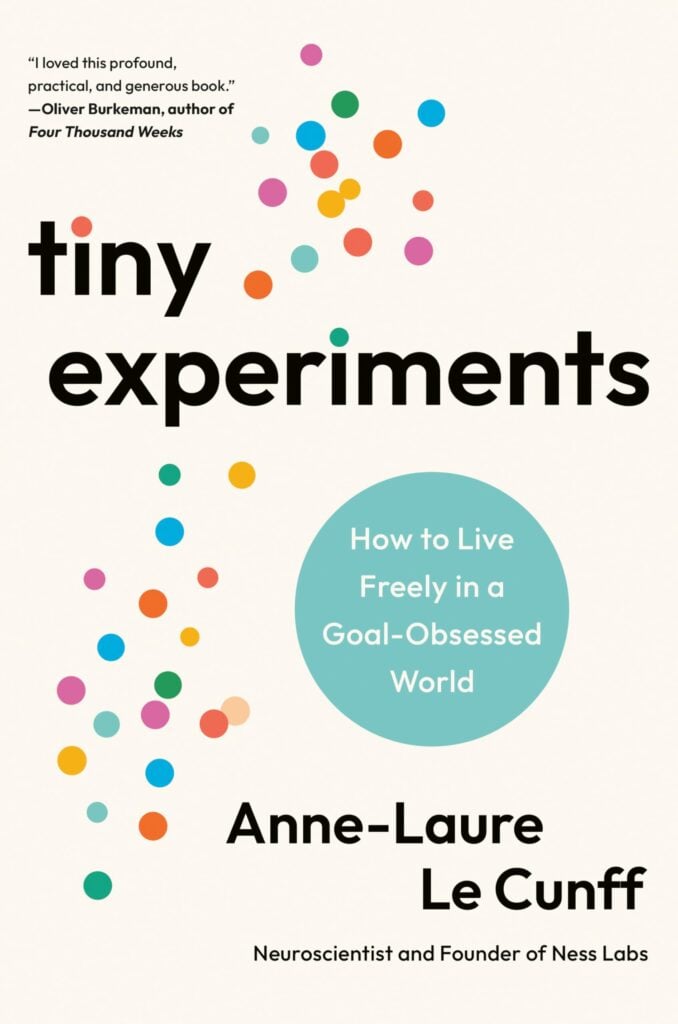
In her new book, Anne-Laure Le Cunff has an inspiring message about how to overcome procrastination and make the little changes that have big impacts by running “tiny experiments” like scientists studying their own lives. By adopting this kind of experimental, curiosity-driven mindset, we are not guaranteed to succeed, but we are far less likely to despair when our results don’t match our expectations or preferences.
Having trouble writing that article? Run an experiment where you write for 15 minutes every morning and … see what happens! Her emphasis on curiosity over certainty, and on circular over linear models of growth and learning, should resonate with vocation folks; I was reminded of our emphasis on journeys over destination and openness to possibility.
The one area I wanted to hear more about—and might have, if I had figured out how to use the engagement/Q&A app earlier—was about the connection to our community. Le Cunff’s message seems tailored to individuals working on (and by) themselves. Can we use these tiny experiments to change our community and to effect social and political reform? I suspect so, but this brief keynote never quite made clear the connection to our role as educators, and—maybe more importantly—as citizens. But then again, maybe I was just fumbling too long with that app. 🙂
—Rich Meagher, Professor of Political Science at Randolph-Macon College (VA) and NetVUE Faculty Fellow
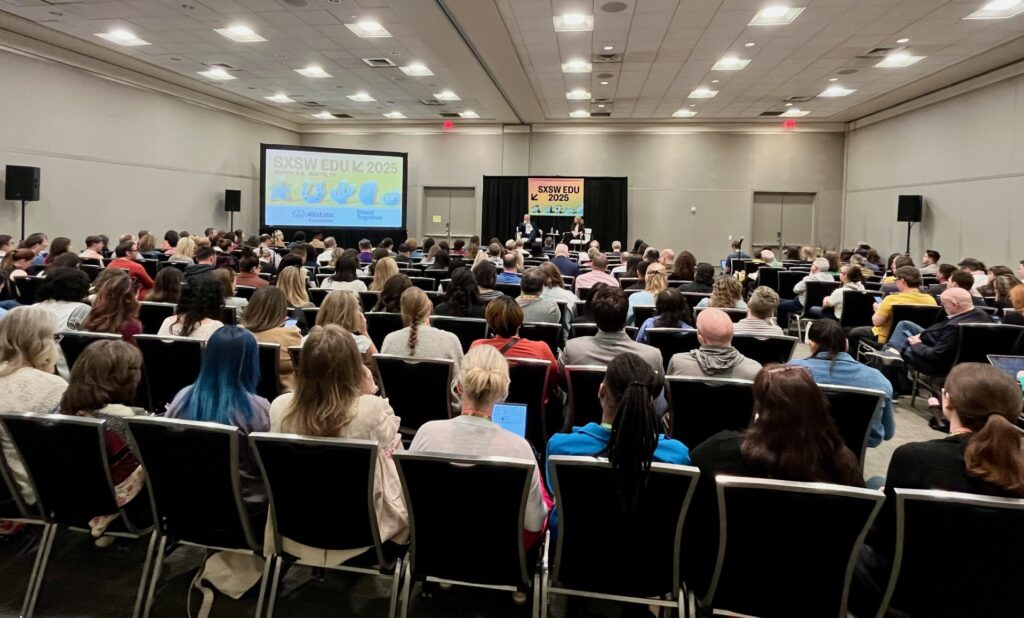
Robert Pampel, director of student academic affairs at St. Louis University also attended Le Cunff’s keynote presentation, and added the following thoughts:
In many ways, Le Cunff articulated in different terms—and provided neuroscientific support for—the kinds of approaches made popular in the contemporary life design literature or even the centuries-old spiritual exercises of St. Ignatius. When we are attentive to what animates us, when we look with curiosity and not judgment on our experiences, and when we have a growth mindset in the face of disappointment and change, we are more likely to gain insight into our preferences, talents, and opportunities to serve beyond ourselves. I found the opening address to be more affirming than novel, and it reminded me that in a conference focused on education and innovation, sometimes calling upon tradition is a good place to start.
—Robert Pampel, Director of Student Academic Affairs, College of Arts & Sciences at Washington University in St. Louis (MO)
Learning While Earning: Rethinking Student Employment
Panel with Jane Swift, President, Education at Work; Louie Rodriguez, J.D., Vice Provost for Professional Development, Engagement, and Strategic Initiatives, University of Texas at El Paso; Ping Shi, Principal, Growth and Strategy – Expert Network, Intuit; and Iris Palmer, Director, New America
The panel discussed how an organization, Education at Work, connects campuses with businesses to offer students paid, meaningful work experiences while they are in school. Because many students need to work long hours to support themselves while in college, Education at Work creates partnerships between institutions and businesses and provides jobs that integrate professional development with academic learning. Because the positions are paid, students do not have to choose between earning a paycheck and gaining relevant experiences.
While smaller institutions may not be able to partner directly with an organization like Education at Work, their model offers valuable ideas. Many small institutions already collaborate with local organizations and community partners. To deepen the learning and reflection from these kinds of experiences, institutions could create paid internships for students and provide support for their further professional development. Further, the closer these experiences align with typical jobs in the company, the more students could reflect on how the work connects to their sense of vocation and future aspirations.
One panelist also highlighted the broader disconnect between college and career preparation. He noted gaps between what is taught in the classroom and what is needed in the workforce, as well as gaps between industry and faculty, and between students and recruiters. Students often struggle to explain how their classroom learning translates to the workplace and their future lives. As educators, we may have opportunities to engage students more intentionally in understanding their own learning and to improve our support for them in articulating how their education applies not only to their careers but also to their broader sense of purpose.
—Sam Brown, Associate Professor of Psychology and Faculty Co-Director of the Center for Creativity, Careers, and Community, Coe College (IA), and NetVUE Faculty Fellow
From Evidence to Impact: Raising Aspirations for Rural Youth
Session led by Don Carpenter, Executive Director, Rural Futures Fund
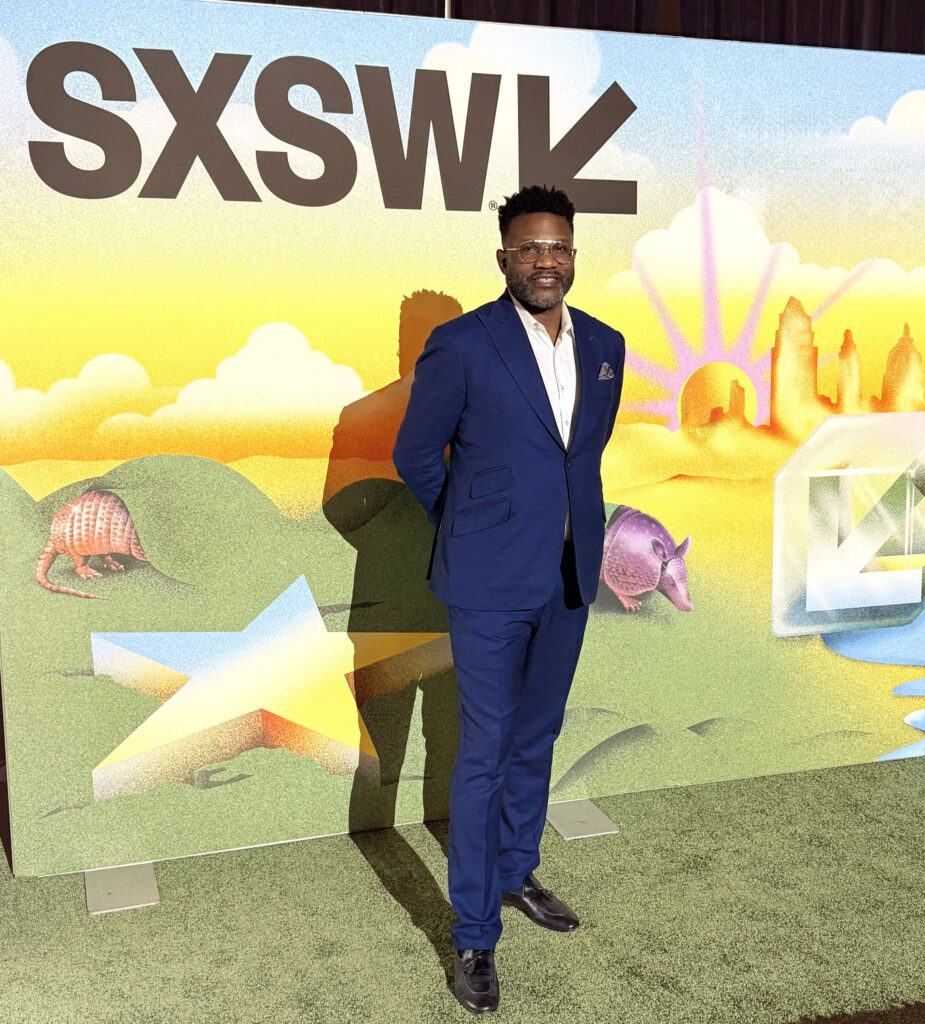
This session offered a compelling look at the Aspirations Incubator, an evidence-based mentoring model that fosters belonging and raises postsecondary aspirations for rural youth in Maine. The discussion underscored a crucial truth: rural students thrive when schools and communities form deep, intentional partnerships to support their educational journeys.
This model is particularly relevant for institutions that are situated in or near rural areas, yet often struggle to attract students from these communities. A structured, mission-driven initiative that pairs these colleges with rural middle and high schools—rooted in mentoring, vocational exploration, and community engagement—could be transformative.
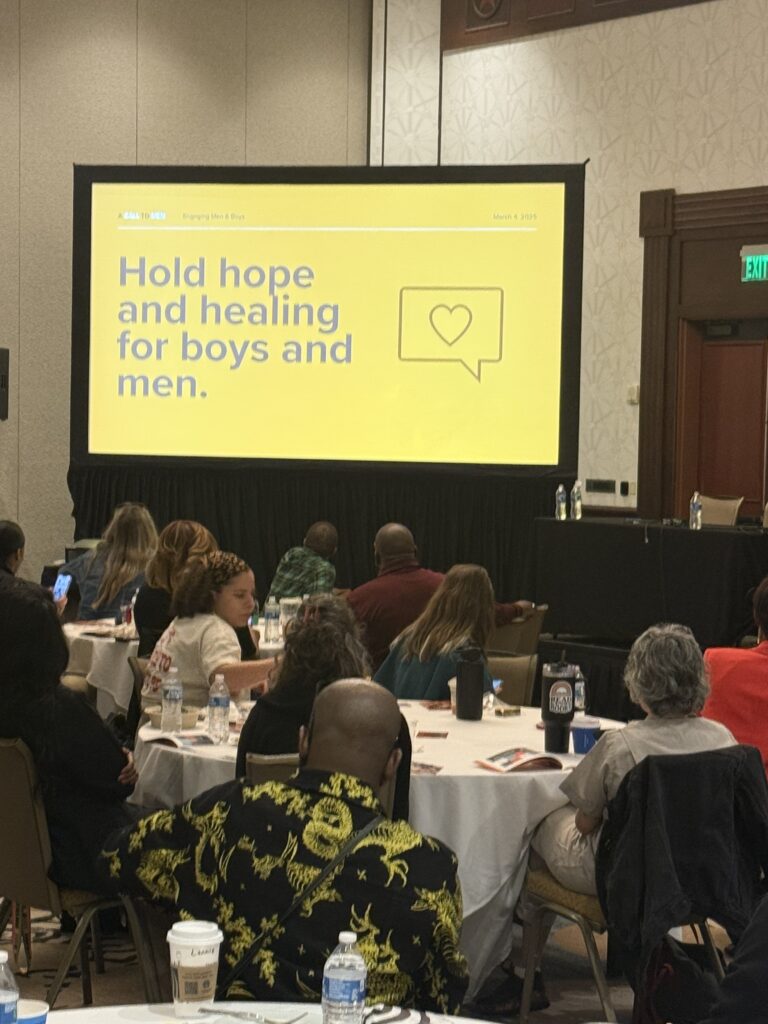
Lutheran higher education has always emphasized the holistic development of students, nurturing both intellect and purpose. As the leader of the Network of ELCA Colleges and Universities (NECU), I am convinced that an ELCA-led aspirations incubator could align with this tradition by offering mentorship that integrates faith, service, and academic pathways. It could also strengthen recruitment by helping rural students see NECU colleges not just as accessible, but as places where they truly belong.
This session reinforced the need for long-term, systemic support for rural youth. If we can adapt this approach, we have the opportunity to live out our commitment to equity in education while ensuring that our colleges continue to serve as beacons of hope and opportunity for all students.
—Lamont Anthony Wells, Executive Director, Network of ELCA Colleges and Universities, an organizational member of NetVUE
Teaching Difficult Histories: Private Colleges & Public K-12
Session led by Daisha Brabham, Director of Education and Public Outreach, Gilder Lehrman Center for the Study of Slavery, Resistance, and Abolition (Yale University); Felix Harcourt, Associate Professor and Chair of History, Austin College; and Michael Butler, Kenan Distinguished Professor of History and Humanities Department Chair, Flagler College
This session, organized by CIC Senior Director of Projects Phil Katz, showcased collaborative projects in Florida and Texas that exemplify how private colleges and universities—like many CIC and NetVUE institutions—can and should leverage our status to support students and colleagues in both K-12 education and public higher education, as well as students on our own campuses. Given the realities of the current political landscape and the limits on engaging critical content, such partnerships can help bridge gaps and strengthen connections between educational institutions and the communities in which they are situated. They can also support students’ holistic development at all levels.
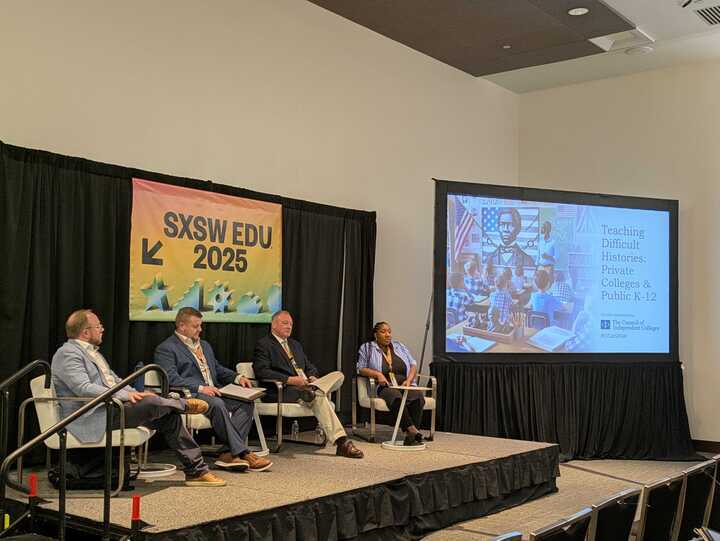
Points of emphasis included what moderator Daisha Brabham (Yale University) articulated as the “long journey of students,” and she encouraged us to break out of our silos to think and work in ways that respond creatively to the current moment without acquiescing to the erasure of challenging realities in the United States, both past and present. In the state of Florida, Michael Butler of Flagler College exercised academic freedom to respond to Florida’s Stop WOKE Act by hosting the conference The Freedom to Teach: Confronting Complex Themes in Contested Spaces. A second case in point, Felix Harcourt (from NetVUE member Austin College) and Brandon Cates (Denison High School) reflected on a partnership between their North Texas campuses that has been a lifeline for high school history teachers who have felt unable to adequately prepare their students for college under the current constraints. Session participants called us to listen deeply to our communities and to respond in the ways we can, while transcending the limits of our role in undergraduate education to “show up for education” in the most capacious sense.
—Kiki Kosnick, Associate Professor of French, Francophone Studies, and Women, Gender, and Sexuality Studies at Augustana College (IL) and NetVUE Faculty Fellow
Faculty Leadership Beyond the Classroom
Session led by Marianne Ward-Peradoza, Provost, St. Edward’s University and Rachael Baker, Director of Professional Development, Network for Vocation in Undergraduate Education (NetVUE)
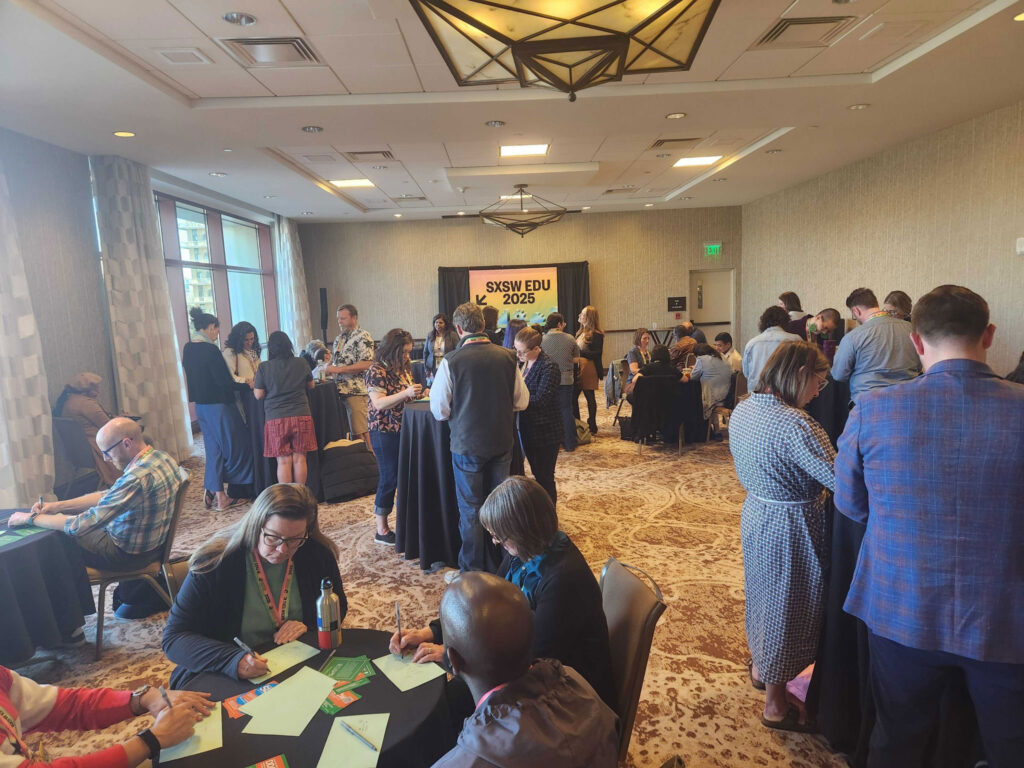
I had the opportunity to lead a “meet-up” during SXSW EDU with the provost at St. Edwards University, Marianne Ward-Peradoza. Almost 50 faculty and administrators gathered to talk about leadership in higher education and to share their own interests, concerns, and questions with other participants. One of the main goals of the session was to help participants recognize the many kinds of leadership opportunities available in academic settings and to consider opportunities they have in their current work to explore their interest in leadership. We also discussed the importance of connecting with others for mutual support and encouragement as they consider leadership in higher education. Participants completed a mapping exercise to think through and share some of their own leadership journeys and to learn from the stories of others. The meet-up was a great opportunity to bring some of NetVUE’s community—and its culture of encouragement and mutual support—to SXSW EDU.
—Rachael Baker, NetVUE Director of Professional Development
Learning from Learners’ Perspectives on Postsecondary Value
Session led by Aislynn Fait, Learner; Avery Legier, Learner, Roadtrip Nation; Jamey Rorison, Senior Program Officer, Gates Foundation; Ruby Savala, Learner
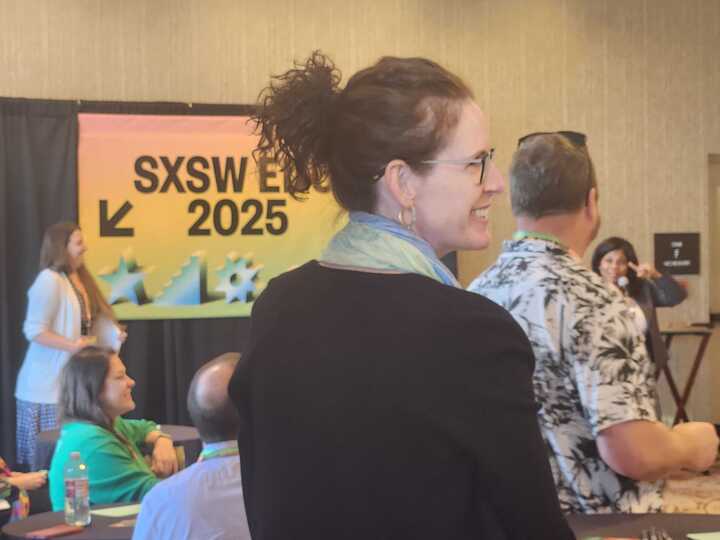
This session brought together a panel of three students who worked with Road Trip Nation on two specific documentaries: Built on Skills and Rethinking Higher Education. Road Trip Nation describes itself as “a mission-driven nonprofit in storytelling and education,” which seems nicely aligned with the vocational exploration and reflective work we are doing at many of our NetVUE institutions. The panel of students discussed the importance of identifying transferable skills acquired through various work and life experiences, including organizational, budgeting, technological, and customer service skill building. They discussed the importance of telling the story of who you are and what you can do. Some important themes included talking to people about their paths, their choices, and their values—actively pursuing the kind of storytelling that informs vocational exploration and discernment. The students and facilitator also talked about the importance of fun, creativity, and curiosity in higher education and in their journeys.
—Sheila Bauer-Gatsos, Chair of English and Director of the Core, Dominican University (IL), and NetVUE Faculty Fellow
Voices for Justice: Navigating Priorities & Realities on US College Campuses
Panel with Taya Britten, Assistant Director, NASPA – Advising Success Network; Jeremy Reece, Vice Chancellor of Student Affairs, Arkansas State University Mid-South; and Kijua Sanders-McMurtry, Vice President for Equity & Inclusion, Mount Holyoke College
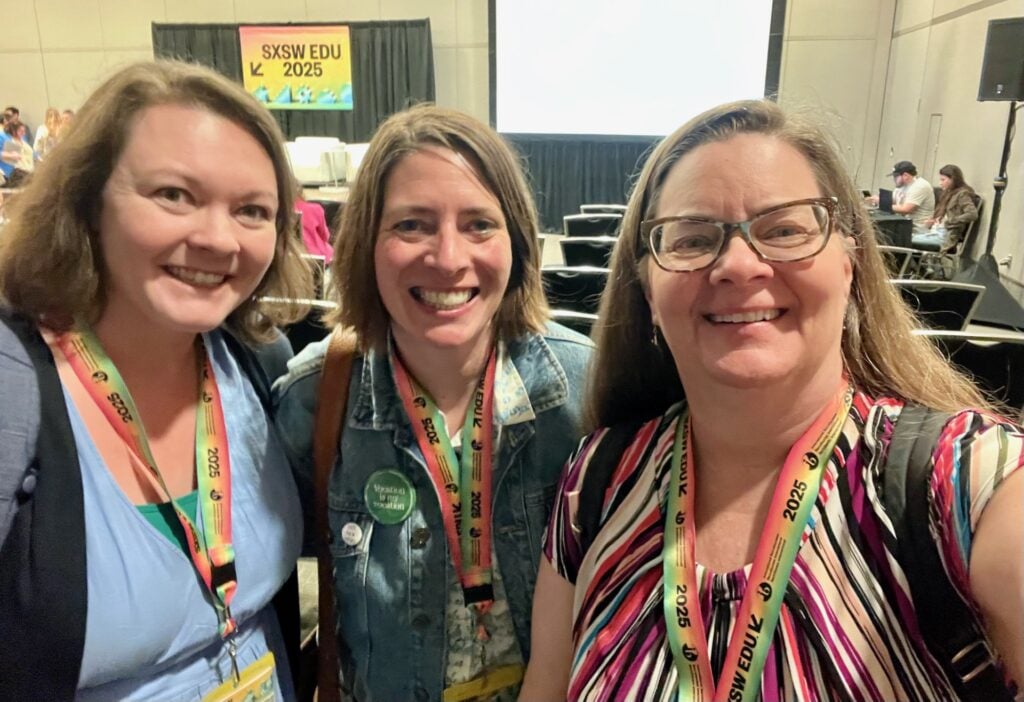
One of the panelists in a session of the Voices for Justice podcast had this advice: “Be in rooms with other people who are seeking and finding solutions.” This characterizes so much of what I heard and experienced at SXSW EDU, whether it be related to pedagogy, policy, or publishing. With so many winds that are shifting in and around higher education, it is both grounding and empowering to remember that working with students is always about transformation and transition. NetVUE’s commitment to community and conversation is affirmed by all that I experienced here.
—Caryn Riswold, Professor of Religion, Mike & Marge McCoy Family Distinguished Chair in Lutheran Heritage & Mission, Wartburg College (IA), and NetVUE Scholar
NetVUE Opportunity
Join Us for the 2026 Summer Seminars (for Staff and for Faculty Members)
The nomination portals will soon be open for four different professional development seminars that will take place in 2026. These five-day seminars are designed to help educators support their institution and its students in the work of vocational exploration and discernment. The seminars also create a cadre of leaders who can provide network-wide guidance on these issues, as well as mutual support to one another as they carry out this work on their respective campuses. Two seminars will be repeated from this year, and two additional seminars will be added for 2026.
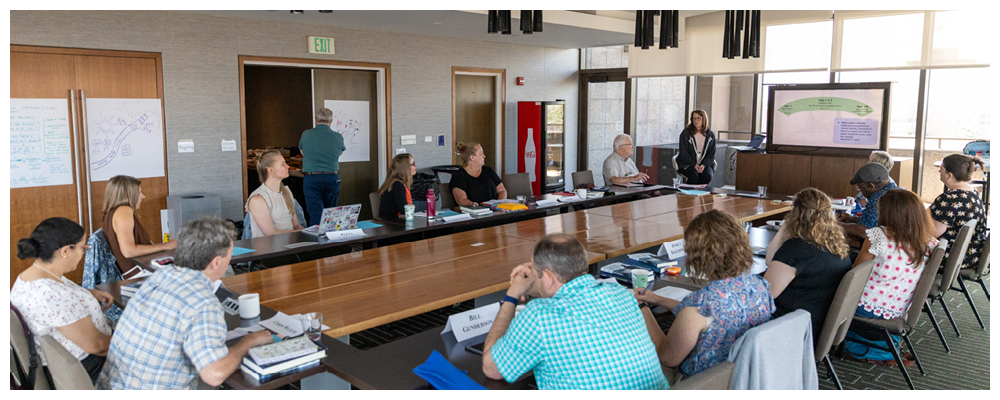
For the classroom:
June 1–5, 2026
Teaching Vocational Exploration
Indianapolis, IN
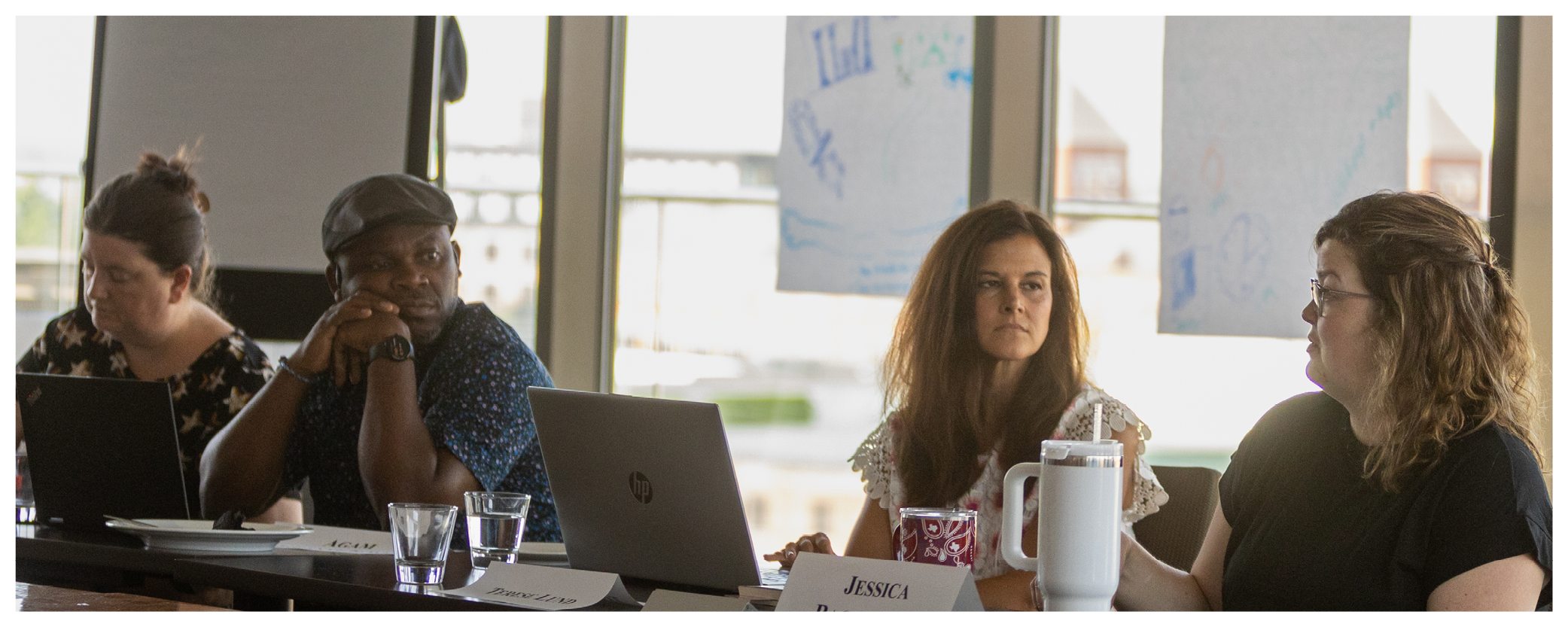
For staff members:
June 22–26, 2026
Vocation Across Campus
Memphis, TN
For more information on either of the above seminars, click on the links above. Seminars will be led by (pictured below, left to right) Darby Ray and Paul Wadell (for the Teaching seminar), and by Julie Massey and Richard Sévère (for Vocation across Campus).

Additional details will be posted soon about two additional seminars that will be offered in 2026:
- For those engaging in the scholarship of vocation, Enhancing Vocational Exploration will be offered June 1–5, 2026 in Indianapolis, led by Rachael Baker, Justin Klassen, and David Cunningham; and
- For campus leaders in part-time administrative roles, Institutional Leadership for Vocation will take place June 15–19 in Louisville, facilitated by a team of NetVUE mentors who hold various leadership roles on NetVUE campuses.
Please consider whether one of these seminars may be for you, and let your cabinet-level supervisor know of your interest. Please indicate to that person that the nomination portals for the first two seminars are already open (or, for the latter two, that the portal will open soon). The deadlines are in the fall of this year, but early nominations are welcome.
NetVUE Gathering
No Small Endeavor: An Exploration of the Good Life Coming to a Venue Near You!
Some of our members may be familiar with the Nashville-based variety show, No Small Endeavor (formerly Tokens). This thematic show blends thoughtful interviews with compelling music to explore what it means to live a good life—a clear connection to our work at NetVUE. (Think A Prairie Home Companion, but with even more theological food for thought.) The show is on tour in April, probably visiting a city near you. Stops include Louisville, Indianapolis, Grand Rapids, Baltimore, Greensboro, Columbus, and Reading. The live show features host Lee Camp in conversation with Malcolm Gladwell, as well as performances from Americana artist Drew Holcomb. Tickets are modest in cost and can be obtained at nosmallendeavor.com/events. Some members of the NetVUE staff will be at the Grand Rapids show; maybe we’ll see some of you there!

To report a technical problem with the website, or to offer suggestions for navigation and content issues, please contact Alex Stephenson, NetVUE communications coordinator, at astephenson@cic.edu.



